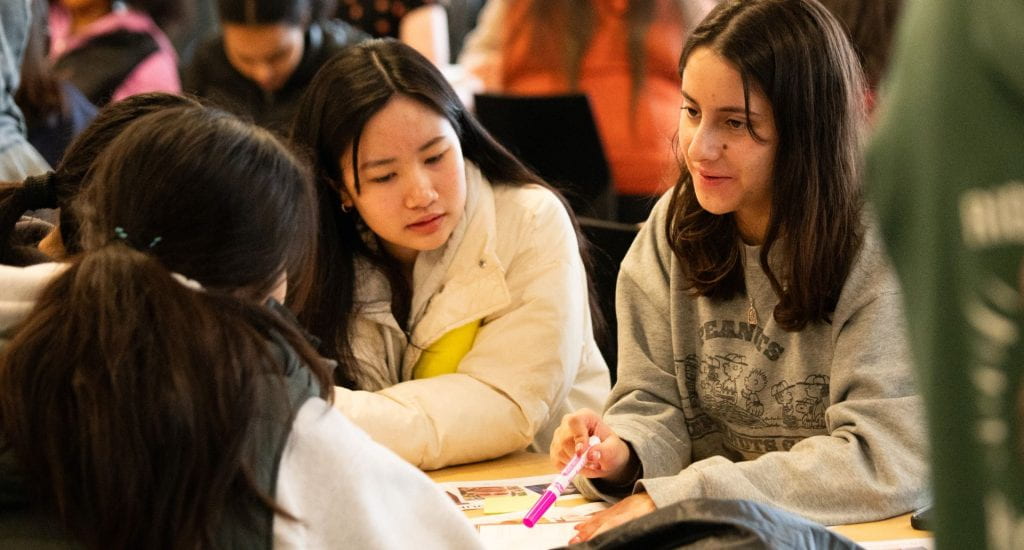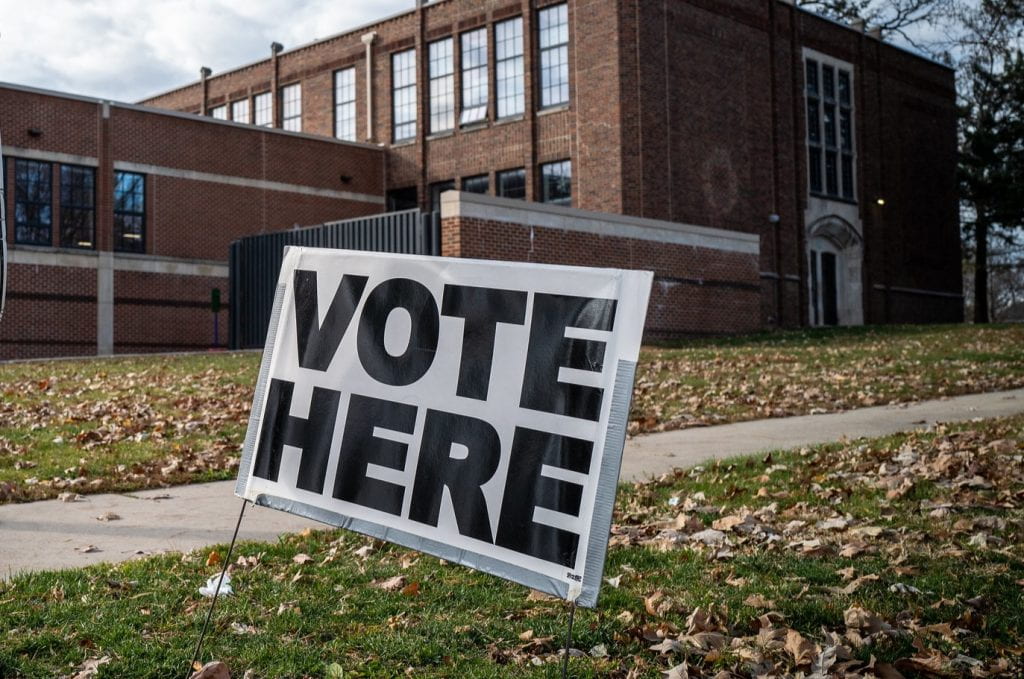News coverage from November 2022 about the Center for an Informed Public and CIP-affiliated research and researchers.
- The New York Times (Nov. 2): “5 unfounded claims about voting in the midterm elections”
In an interview about unsubstantiated narratives about mail-in voting, CIP research scientist Mike Caulfield said that “[p]eople are primed, much more mobilized and more soaked in conspiracy theories.”
***
- KING5 TV (Nov. 3): “Washington state Democrats, Republicans disagree on social media moderation”
Should conspiracy theories and theorists be curbed on social media? And should the government have a say in this form of moderation? In an interview with KING5 in Seattle, CIP researcher Morgan Wack, a UW Political Science doctoral student, said: “As many problems as people associate with social media, they associate even more with government and government intervention.”
***
- Science (Nov. 4): “As Musk reshapes Twitter, academics ponder taking flight”
CIP faculty member Carl T. Bergstrom, a UW Biology professor was interviewed regarding what researchers on Twitter may do next, following Elon Musk’s purchase of the platform and growing concerns about bad behavior and misinformation. “I’m hedging my bets with a Mastodon account but not planning to leave in the short term,” Bergstrom said.
***
- The Seattle Times (Nov. 4): “Washingtonians split on social media regulation”
CIP co-founder Jevin West, a UW Information School associate professor, was interviewed by The Seattle Times regarding results on WAPoll questions related to attitudes of Washington residents regarding content moderation on social media. The WAPoll was conducted by SurveyUSA for The Seattle Times, KING5, the CIP and Washington State University’s Edward R. Murrow College of Communication.
***
- Bloomberg (Nov. 4): “Conspiracy theorists jump on election snafus to sow doubt”
“There’s going to be some amount of error in the process,” CIP research scientist Mike Caulfield told Bloomberg in an interview, referring to the U.S.’s unique and complex voting system across more than 3,000 counties. This siloed nature is beneficial, however, as the election infrastructure is built in a way that “these errors are not the impactful ones.”
***
- The Washington Post (Nov. 4): “Twitter layoffs gutted election information teams days before midterms”
The Washington Post quotes comments made by CIP director Kate Starbird, a UW HCDE associate professor, during a virtual news conference about how Twitter has been “massively disrupted” and how she is “waiting to see how dynamics change without even knowing what changes have happened underneath the hood.”
***
- NPR Lifekit (Nov. 4): “Stop hurting your own feelings: Tips on quashing negative self-talk”
Do you find yourself saying mean things to yourself? Imagining the worst? The acronym SIFT (source, impact, frequency and trends), developed by CIP research scientist Mike Caulfield, can help you figure out whether you should listen to feedback from others or just ignore it.
***
- KIRO7 News (Nov. 4): “UW expert explains how debunked serial killer rumor went viral on social media”
In a live in-studio interview with KIRO7’s Monique Ming Laven and Gary Horcher, CIP research project coordinator Taylor Agajanian discussed how recent rumors, later debunked by law enforcement, about a Seattle-area serial killer, spread quickly via social media and how people can spot “copypasta” style social media posts that may be missing important context or be misleading.
***
- Bloomberg (Nov. 5): “Twitter cuts spur concerns about U.S. midterms, human rights” CIP director Kate Starbird was quoted in an article about mass layoffs at Twitter.
***
- Agence France-Presse (Nov. 4): “Twitter layoffs before US midterms fuel misinformation concerns”
Comments from CIP director Kate Starbird about mass layoffs at Twitter were featured in an AFP story. “I would be real careful on this platform in the coming days… about what you retweet, who you follow, and even your own sense of what’s going on,” Starbird said.
***
- Statescoop (Nov. 7): “Researchers see conspiracy theories forming around National Guard’s election work”
The National Guard has been actively helping protect networks from malicious activity and conspiracies around the elections. CIP research scientist Mike Caulfield was quoted by Statescoop saying that, “if you look at the way the reporting is being shared, you do find a lot of conspiracies in that.” CIP co-founder Kate Starbird had tweeted a chart that indicated “how a handful of sites influential on the far right had aggregated reporting on the National Guard’s work.”
***
- The Associated Press (Nov. 8): “Mishaps, distrust spur Election Day misinformation”
In an interview with the AP, CIP researcher Morgan Wack, a UW Political Science doctoral student working as part of the non-partisan Election Integrity Partnership, said that false claims about the 2022 U.S. midterm elections are likely going to stick around. “We will almost certainly see this again in 2024,” Wack said.
***
- Cyberscoop (Nov. 8): “Online disinformation fuels violent threats against poll workers”
Comments made by CIP co-founder Kate Starbird and UW Information School doctoral student Stephen Prochaska during a media briefing with reporters were highlighted in Cyberscoop.
***
- CNN (Nov. 9): “A glitch in Maricopa, a gift to election deniers”
Speaking to CNN, CIP director Kate Starbird, a UW Human Centered Design & Engineering associate professor, spoke about the unique position that Maricopa County, Arizona has in the genesis of conspiracy theories about voting. “We’ve anticipated legitimate mistakes and issues with election infrastructure being reframed as fraud.”
***
- The Washington Post (Nov. 9): “Editorial: Here’s the sad truth about election-related disinformation”
An editorial written by The Washington Post’s Editorial Board cited research from the Election Integrity Partnership, the non-partisan research consortium co-led by Stanford University’s Internet Observatory and the University of Washington’s Center for an Informed Public.
***
- The Associated Press (Nov. 9): “Post-election misinformation targets Arizona, Pennsylvania”
In another instance of misinformation being spread to induce doubt and fear amongst voters, an image of a poll worker from Wisconsin was shared on social media, claiming instead that it showed a Philadelphia election worker doctoring ballots. CIP co-founder and UW associate professor Kate Starbird spoke to AP about such “voter fraud implications” quickly being “reframed as voter fraud.”
***
- The Washington Post (Nov. 9) : Election researchers report less online misinformation than expected
In an interview with The Washington Post during the midterm elections, CIP co-founder and UW associate professor, Kate Starbird, noted that the immediate aftermath of the election was notably less active than anticipated.
***
- Mother Jones (Nov. 10) “DeSantis’ policies are terrible for moms. He convinced them otherwise”
CIP researchers Rachel E. Moran and Taylor Agajanian spoke with Mother Jones about misinformation about how mis- and disinformation can target communities of women. “It’s all trended towards this sense of female empowerment being the power to resist the government rather than empowerment in sort of more traditional senses of the word,” Moran said.
***
- The Scientist (Nov. 11): “What is the future of Science Twitter?”
“I’m hedging my bets with a Mastodon account but not planning to leave [Twitter] in the short term,” UW Biology professor and CIP faculty member Carl T. Bergstrom told The Scientist about what researchers, scientists, and science communicators plan on doing following Elon Musk’s new ownership of Twitter.
***
- TechTheLead (Nov. 14): “Can you tell which face is real? These AI-generated photos teach you how to spot deepfaked images”
This article that references Which Face Is Real?, a project developed by CIP faculty members Jevin West and Carl Bergstrom and encourages readers to try identifying deep fakes, by prescribing an easy-to-use method.
***
- The Atlantic (Nov. 12): “Arizona’s ‘tricky voting machines’ sounds suspiciously familiar”
CIP research scientist Mike Caulfield, a media literacy scholar who studies election rumors, describes the process of amplifying the stories into conspiracies, as setting a scene. “Something is discovered. A piece of data is found. Someone dies. The trope is a recipe for connecting the novel element to the overarching narrative in a formulaic way. And it’s immediately familiar to the audience.”
***
- The Seattle Times (Nov. 15): “How legit is that verified Twitter account?”
In an interview with The Seattle Times about changes to how Twitter recognizes “verified” users, CIP co-founder Jevin West, a UW Information School associate professor, discussed things Twitter users should be on the lookout for to avoid imposter accounts.
***
- PolitiFact (Nov. 15): “How days of vote counting became go-to ‘evidence’ for false election fraud claims”
In an interview with PolitiFact about claims from election deniers that attempt to sow doubt in vote-county procedures, CIP researcher Morgan Wack, a UW Political Science doctoral student tracking election misinformation, noted how they’ll then claim: “Well, there were these delays, so that must have been when they stuffed the ballots or switched the votes or did the hacking.”
***
- CNN (Nov. 17): “The myth of widespread election fraud”
In a 45-minute “CITIZEN by CNN” panel discussion moderated by CNN’s Donie O’Sullivan, CIP director Kate Starbird, a UW Human Centered Design & Engineering associate professor, discussed research insights about rumors, mis- and disinformation from the 2022 midterm elections. In some cases, like in Maricopa County, Arizona, there were “real problems, usually caused by sincere errors — people make mistakes, processes don’t always work — but those were framed as potentially voter fraud and you could see suspicion and accusations of fraud around some of those“ incidents, she said.
***
- Snopes (Nov. 17): “Why Facebook won’t be fact-checking Trump now that he’s announced candidacy”
In an interview with Snopes, CIP co-founder Jevin West, a UW Information School associate professor, commented on Facebook’s policies on why the platform won’t factcheck all forms of content produced by Donald Trump following his announcement that he’s running for president in 2024. “The policy is problematic and inconsistent,” West said. “You are fact-checking all these other [claims], but you are not fact-checking the things said by people with humongous microphones.”
***
- Agence France-Presse (Nov. 17): “Trump fans dial down ‘fraud’ rhetoric after poll setback”
“The underlying (conspiracy) engine is still churning away, and if influencers decide to engage with it, we are instantly back where we started,” CIP research scientist Mike Caulfield said in an interview with AFP.
***
- The New York Times (Nov. 19) “Twitter was influential in the pandemic. Are we better for it?”
In a New York Times guest essay, CIP faculty member and UW Biology professor Carl T. Bergstrom explores the ways scientists are using the social media platform under Elon Musk and what that ultimately means for the public. Bergstrom writes: “As we consider how social media can serve science and society going forward, we should notice how the profit models that underpin the whole endeavor stand in the way of the honest discussion of science. Most of the time that’s just annoying. In a pandemic, inhibiting the flow of accurate scientific information can be deadly.”
***
- Reuters (Nov. 24): “Fact check: Election graphs published by Mike Lindell do not indicate U.S. voter fraud”
CIP research scientist Sukrit Venkatagiri was interviewed by Reuters for a fact check article examining election graphs shared by Mike Lindell, who claims that they show voter fraud from the 2022 U.S. elections. “Visualizing these unofficial vote counts in real-time, where the incoming data may not be uniform in distribution can lead to these ‘spikes.’” Such visualizations can be potentially misleading, Venkatagiri said, adding: “It’s important not to attribute this to malice, but just a quirk of the underlying data, data entry errors, or errors later in the data collection and reporting pipeline.”
***
- National Public Radio (Nov. 28): “San Francisco considers allowing law enforcement robots to use lethal force”
CIP co-founder Ryan Calo, a UW School of Law and Information School professor, was interviewed for a NPR segment about a proposal in San Francisco that would authorize law enforcement to use robots capable of using lethal force. Calo, in his comments, noted questions about liability when someone is hurt or killed by a law enforcement robot. “It becomes very difficult to disentangle who is responsible. Is it the people using the technology? Is it the people that design the technology?”




